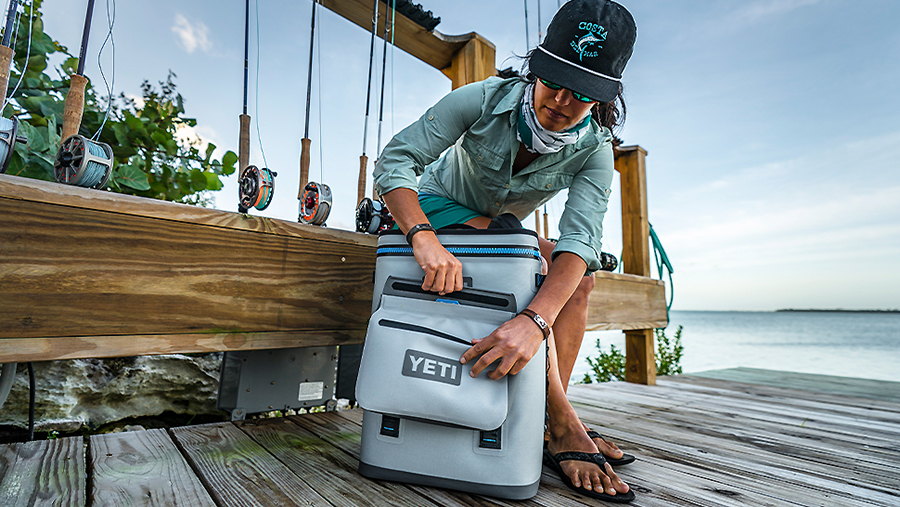On a call with analysts, Matt Reintjes, Yeti’s president and CEO, said he remained confident that the drinkware and cooler maker would return to its long-term revenue target of 10 percent to 15 percent growth despite sales growth expected to fall well below that rate in the current year due to a massive recall and a slowdown at wholesale.
Sales are expected to only increase in the range of 3 percent and 5 percent this year.
The growth will follow a revenue gain of 16 percent in 2022 which followed a 29 percent growth in 2021, driving a three-year compounded annual growth rate of 21 percent.
On Yeti’s quarterly call, Mike McMullen, CFO, said the growth reflects the estimated impact of the stop sale of products affected by Yeti’s proposed recalls and its expectations of wholesale sell-in to start the year.
In a regulatory filing on February 8, Yeti said it had implemented a global stop sale of its Hopper M20 Soft Backpack Cooler, the Hopper M30 Soft Cooler and the SideKick Dry Gear Case. Yeti identified that the magnetic closure on the products could fail and release magnets, posing injury or death if ingested. Yeti is not aware of reported injuries.
The guidance includes an estimated 500 basis point unfavorable impact from the stop sale on products impacted by the recalls and the affected products’ expected re-introduction in the fourth quarter. The recall is expected to impact sales through the third quarter of 2023.
In regards to wholesale, McMullen said Yeti expects to continue to drive positive sell-through in the channel, which has been seen quarter to date but is maintaining a “cautious approach to the level of sell-in as we move through the front half of the year.”
As a result, Yeti is expecting approximately flat total sales growth during the first three quarters of the year, followed by a return to double-digit growth during the fourth quarter.
McMullen added, “Importantly, we think the expected fourth quarter growth is more indicative of how we are planning the business in the long-term and remain confident in our ability to return to 10 percent to 15 percent sales growth.”
For the current year, sales growth in the DTC channel is expected to offset an expected decline in the wholesale channel, driving its DTC mix to approximately 60 percent of revenues. DTC represented 57 percent of the overall sales mix in 2022, compared to 56 percent in 2021.
Wholesale is expected to return to growth in the fourth quarter, which includes an expectation that seasonal sell-in will revert to more traditional timing in 2023 versus the earlier wholesale ordering seen in the third quarter of 2022.
Asked by an analyst to expand now how Yeti sees a return to its long-term annual growth target of 10 percent to 15 percent, Reintjes cited opportunities “across the product portfolio we have, the innovation pipeline, the opportunity to continue to engage with consumers in the U.S. market through our direct channels and our incredible wholesale partners.”
He also said international remains a “relatively untapped global opportunity” and “will be a big part of that growth resurgence.”
In the domestic market, Reintjes particularly cited opportunities to reach new geographies and new customers while driving growth in its core markets.
“We feel good about where we were positioning the business for 2023 before the proposed recall and where we’re positioning the business now to exit 2023 and beyond,” said Reintjes. “So, I think that it’s really kind of running the Yeti playbook that we have for the last 15-plus years of finding new customers, growing the brand, growing the product portfolio, and driving into new geographies. And it’s a bit of why we talked about continuing to lean into the investment. I think this is a year where there’s a real opportunity to set Yeti up for a great close to 2023 and a great start to 2024.”
Photo courtesy Yeti
















